Agriculture start-ups are implementing emerging technologies like AI, data analytics, IoT and helping farmers increase productivity and better yields. These start-ups work on the agricultural industry’s disruptive cultivation, distribution, and processing technologies. The agricultural sector is afflicted by several problems, such as the use of outdated equipment, poor infrastructure, farmers making limited returns on the sale of crops, and being unable to access a wide range of markets easily.
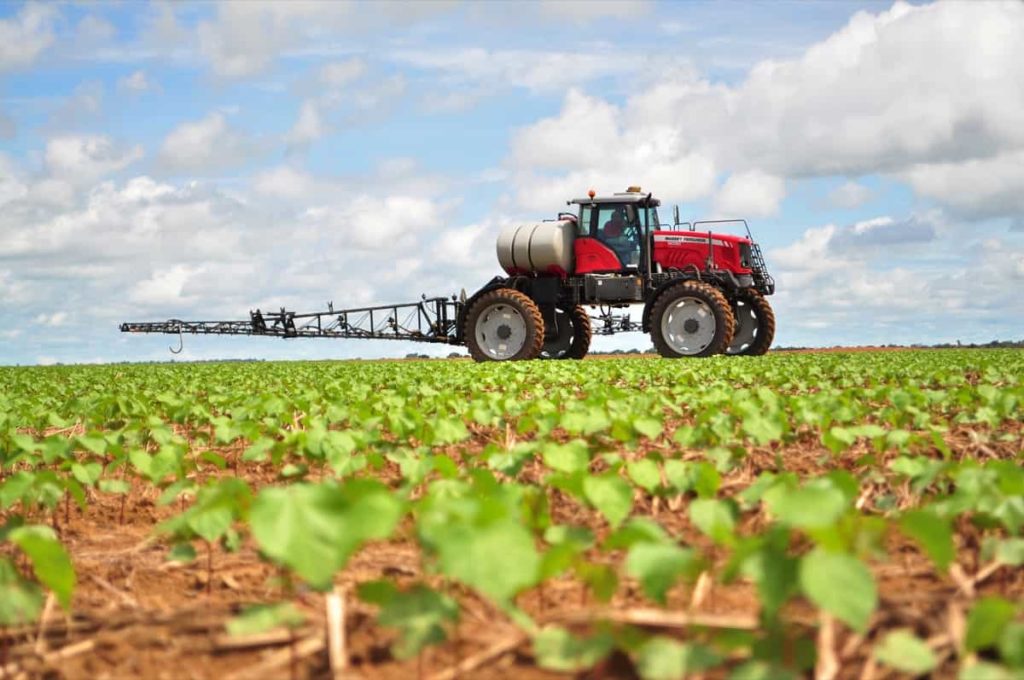
Adequate infrastructure and supply chain management are more important concerns. With improvements in technology sectors, digitalization, and start-up culture growing rapidly, many newcomers are entering the start-up ecosystem. Sustainable farming is important because it offers solutions to the problems caused by how most of our food is grown today.
How start-ups are making agriculture more sustainable
What are agriculture start-ups?
Agriculture start-ups are companies that operate in agriculture and allied industries and are leveraging the benefits of technology to provide value-added services and automation solutions to traditional agriculture. In addition, agriculture start-ups are constantly working to improve their products and farming operations to reduce the impact of unpredictable weather on the current environmental catastrophe.
Agriculture is changing rapidly in modern times. The growing population and consumer preferences are shifting towards organic and sustainably produced goods. To meet these demands, the traditional agricultural industry must adopt new technologies to make farms more efficient and automated production.
Trends shaping the sustainable agriculture future
Farm methods help make crops more productive by providing more accurate and timely field and weather data, reducing the need for fertilizers and pesticides, increasing efficiency, and reducing fuel use. Key technologies for sustainable agriculture include the following:
Artificial intelligence
AI systems analyze data to help farmers find when and where to plant crops and feed livestock best. When to sell to get value. Data can help farmers apply fertilizers more timely and accurately. The more farmers know about AI before they grow, the better they can allocate resources and, ultimately, use fewer chemicals and fuel.
Regenerative agriculture
Regenerative agriculture is a sustainable trend with a philosophy that aims to maintain only practices that do not directly result in additional environmental damage. Using sustainable farming practices, regenerative agriculture captures the carbon in our atmosphere and transfers it to the soil.
No-till farming
Tillage is a traditional farming practice used by farmers to loosen the soil and remove weeds, but it also disrupts the existing soil structure, which prevents the retention of existing soil nutrients. Tilling also releases carbon dioxide into the atmosphere, directly contributing to climate warming.
Plants and soil already have their sequestration capabilities, so when no-till practices are used, and the soil is left undisturbed, it can take up water more easily, reducing erosion can, reduce the potential, and store carbon dioxide in the ground instead of releasing it. Thereby creating an incentive for farmers to restore carbon-depleted soils.
Biotechnology
It is one of the oldest tools that farmers have for improving crops. Over the years, crossbreeding has produced hardier plants with better yields as well as heavier cattle. Advanced methods developed in the laboratory have reduced the time it takes to crossbreed plants, adding or deleting traits to adapt to conditions.
In case you missed it: How Digital Agriculture/Farming Helps Rural Farmers – A Guide for Smart Farming
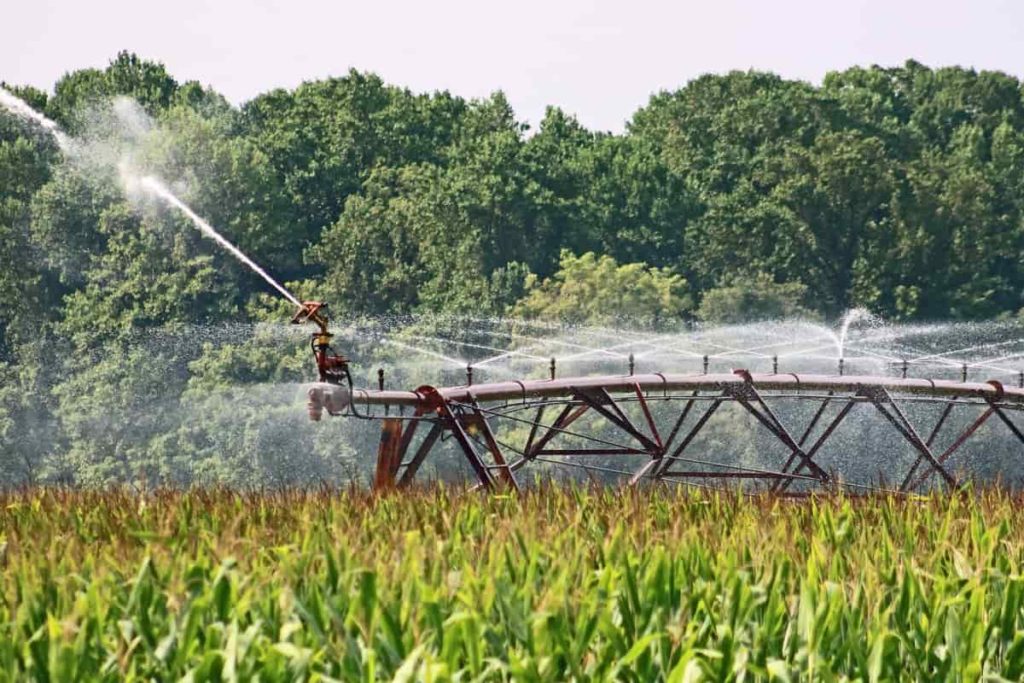
Although these methods are controversial—opponents worry that modified crops could introduce unexpected and potentially devastating effects—proponents point to how plants can be made more productive and resistant to pests and diseases can and local conditions, such as more severe drought or excess moisture.
Development of Climate Smart Agriculture
Farmers have resulted in increased threats to crop production, fisheries, and livestock breeding. The biggest challenge is achieving sustainable agricultural development amid the climate crisis. Now, farmers and ranchers are climate-smart crops, able to withstand the pressures of climate change. These crops reduce the risk of crop damage due to climate change. A typical example of a climate-smart crop is the castor oil plant, which is providing farmers with higher yields. More plant seeds will be developed in the future for the specific purpose of climate change tolerance.
Organic farming
Organic farming refers to growing crops without the use of harmful chemicals such as synthetic pesticides. These toxic chemicals enter our air, land, and water when sprayed, run off by farm water, and not disposed of properly. It is incredibly popular because it doesn’t use many different farming methods than conventional farming.
However, this is also a downside as it means it still uses harmful techniques such as farming. Tillage is a common practice for both conventional and organic farms. It occurs when soil is prepared for agriculture by digging, stirring, and turning it over, such as when using a hoe or rake.
Permaculture
It focuses on designing farms to mimic natural ecosystems. It is a set of many principles used to minimize human intervention in food cultivation while maximizing yield. Permaculture means using only renewable energy and not wasting anything. Because it aims to maximize the land’s natural features, such as collecting and using rainwater, it is a popular option for those looking for sustainable farming solutions. Like organic farming, it does not use harmful chemicals. Permaculture also allows insects to pollinate plants naturally, while companion planting protects crops from infestation.
Drones
Farmers continue to find more advantages for drones that help them manage crops more efficiently. Drones were deployed to spray crops with chemicals. Other emerging uses include taking aerial images to assess crops and receiving data from sensors that can determine crop health as well as weed populations. In some cases, drones drop tree seeds for forestry projects.
List of Start-ups are making agriculture farming more sustainable
Big Wheelbarrow
It connects wholesale food buyers with local farmers. Big Wheelbarrow makes it quick and easy for buyers, regardless of size, to work with small independent growers.
IRRIOT – Smart Irrigation
Excessive water use is one of the most unsustainable practices in industrial agriculture. However, smart irrigation solutions address this by providing the correct amount of water for each unit area in a field. Agriculture start-ups deploy Internet of Things (IoT) sensors for smart irrigation. These solutions take into account factors such as weather, soil conditions, and plant water use.
Swedish start-up IRRIOT develops IoT-based solutions for irrigation. The start-up’s wireless irrigation platform connects to 32 remote units and 34 sensors, ensuring 24/7 control over watering schedules. The start-up also provides a web app that lets users configure and monitor remote units and sensors.
Fieldin
Fieldin is one of the agricultural start-ups shaping the future of farming. They have developed one of the world’s largest smart farming operations platforms for high-value crop growers, and with teams on three continents, they are committed to helping farmers farm more efficiently and accurately.
They work day and night. Their products are smart spraying, smart harvesting, and smart cultural practices. Additionally, using proprietary sensors and Fieldin’s innovative scouting app, their method seamlessly connects every pest management lifecycle stage, from spray planning and field scouting to implementation and analysis.
In case you missed it: Top 20 Ways to Prepare Your Garden for Winter: Getting Ready For Cold Season Crops
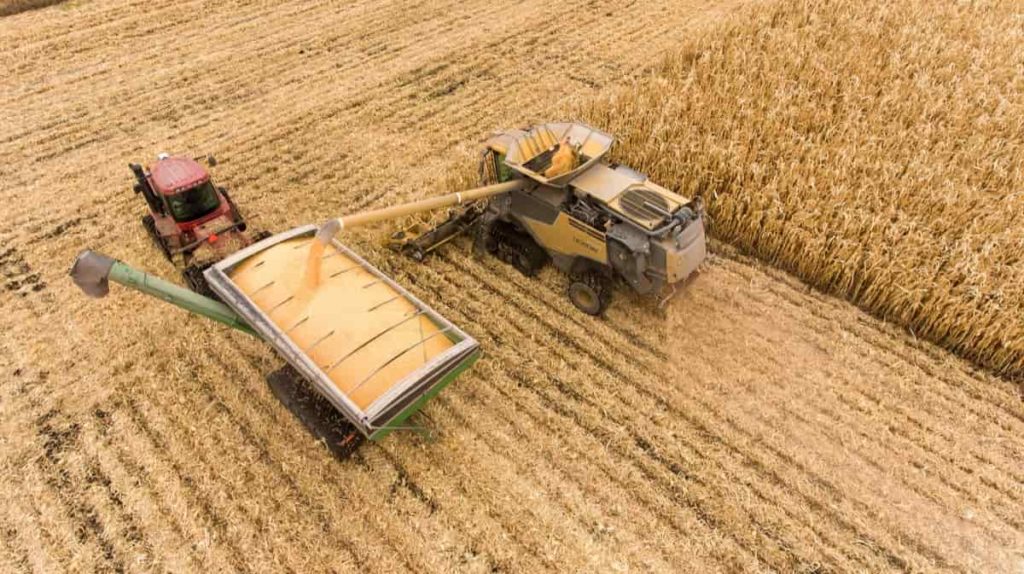
Cainthus
It is developing the world’s most advanced technology for dairy farms today. Technology that is transformative for animals, farmers, and food production. Using computer vision and artificial intelligence for early detection of health, reproductive, and environmental changes, Cainthus translates visual information into actionable data.
Dahlia Robotics – Farm Robotics
Because weeds compete with crops for resources, their eradication requires constant efforts. Manual weeding is time-consuming and labor-intensive. Whereas, blanket use of herbicides is unsustainable and often polluting. Farm robotics start-ups provide fast and efficient robotic weeding solutions. German start-up Dahlia Robotics makes autonomous robots that walk the field, identify weeds and mechanically remove them. Additionally, the robots use artificial intelligence algorithms to avoid crop damage.
Rex Animal Health
It is on a mission to help livestock producers and farmers feed the world by increasing productivity and predicting, preventing, and accurately managing disease in the herd. They have the largest database of clinical, health, performance, and genetic data on these cattle. Also, agribusinesses can use this data to understand their supply chain to identify the source of potential foodborne illness, find the most efficient producers, set trade prices for commodities, and understand and assess the risk of increasing transparency in the food supply chain.
SOSBio – Sustainable Agrochemicals
Agricultural chemicals like fertilizers and pesticides are widely used in modern farming. However, agrochemicals made from synthetic chemicals have harmful effects on soil and water. This leads to a vicious low yields cycle and high use of agrochemicals. To address this, agricultural start-ups are working on a range of bio-based, sustainable agrochemicals.
Australian start-up SOSBio provides sustainable agrochemicals that are more effective than conventional chemicals. A start-up performance fertilizer, contains a unique blend of organic matter, essential nutrients, and micronutrients. Compost contains high levels of carbon and natural sugars as well as humates. SOSBio’s fertilizers release their active ingredients adaptively, leading to sustainable stimulation and high yields.
Foris.io – Precision Agriculture
It enables the application of precise amounts of crop production inputs. Agriculture start-ups are working on precision agriculture solutions that use a variety of sensors and remotely or autonomously operated devices. By minimizing crop production inputs usage, these solutions promote sustainable farming.
It is a US-based start-up offering solutions for precision agriculture. The start-up’s platform stores all farming-related information related to crop, soil, weather, and agrochemical usage. The start-up analyzes current and historical data and provides data-driven recommendations for crop treatment and irrigation. As a result, it improves yield and soil health while using fewer resources.
Aibono
It provides farming intelligence, technology, expertise, and gadgets to farmers. The start-up advises farmers on the right amount of inputs to use for maximum production. They started in the niche of providing a service as farm management whereby a farmer can outsource his entire measuring, yield management, and decision-making process to the service.
In case you missed it: How to Start Indoor Garden Under Stairs: A Guide to Planting and Care
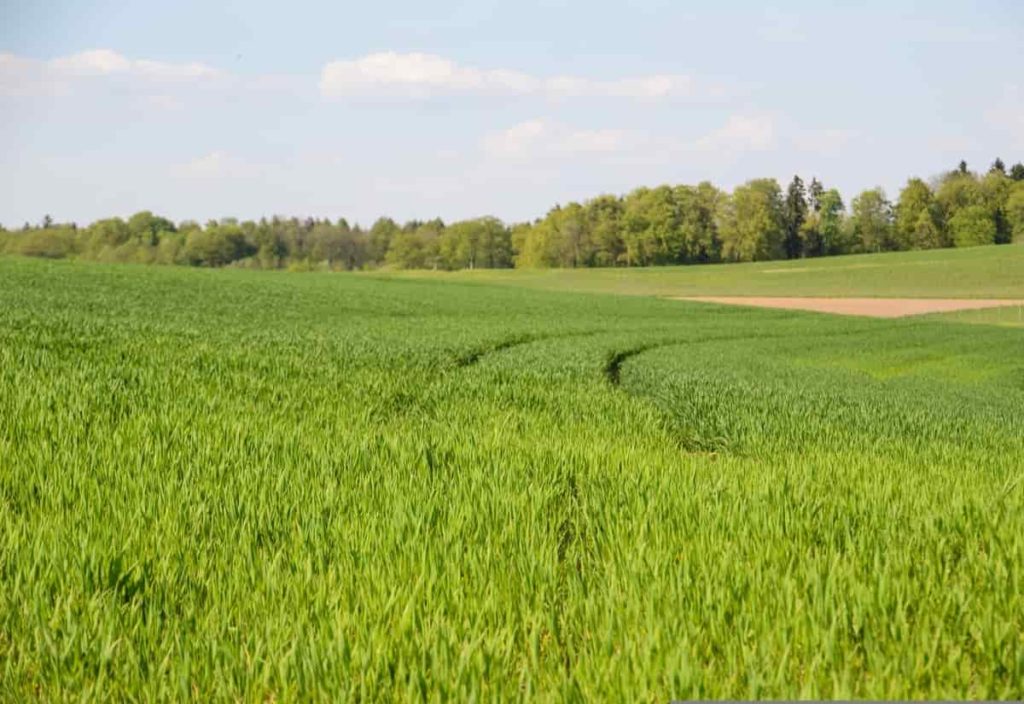
The agritech company has helped around 140 farmers to increase their production by around 50%. It operates within the Nilgiri Hills in Tamil Nadu. Farmers are given accurate daily interventions through centrally managed data science and recommendation engines powered by data scientists and agronomists, resulting in a 30 to 50 percent increase in production.
AgricxLab
AgricxLab is a Thane-based online B2B platform that connects cold storage owners with major buyers of agricultural products. This company uses smartphone imaging to assess the quality of agricultural production through its mobile app, which uses artificial intelligence and computer vision on images to provide objective, accurate, and rapid quality assessment of agricultural production. Agricx offers solutions to warehouse and enterprise clients with food production supply chain expansion plans.
Growcentia
Growcentia has developed a way to use natural microbes to improve plant nutrient availability. Growcentia developed approach enables growers and farmers to optimize their soil health and plant health across different seasons, delivering maximum yields with minimal environmental impact.
Ginkgo Bioworks
This organism solves challenges in industries ranging from fuel to pharmaceutical production. It specializes in engineering microbes to produce cultured ingredients such as flavors, fragrances, cosmetics, and sweeteners.
AgroStar
AgroStar offers farmers an online marketplace to buy agricultural inputs. This agritech start-up also helps farmers by providing real-time advice from experts on how to manage their crops and increase their yield.
DeHaat
DeHaat offers agricultural services such as access to agricultural inputs like seeds and fertilizers at affordable prices, personal assistance, soil testing, weather reports, micro Finance, and Insurance.
CropIn Technology
CropIn provides a one-stop SaaS-based solution platform that enables agribusinesses to increase efficiency, productivity, and sustainability. Its platform provides real-time weather updates, the ability to manage farm activities, and forecast crop yields to reduce risk and achieve better yields.
Bactana
By isolating a new bacterial strain from the cow’s gut microbiota, Bactana developed a new drug that acts healthier than antibiotics that are administered to cattle. The start-up claims that by switching from antibiotics and hormones to Bactana’s solution, farmers can increase cattle growth, weight, and milk production and reduce mortality. As the product is based on naturally occurring bacteria, it is sustainable and healthy for animals and human consumers, reducing the chances of developing antibiotic resistance.
In case you missed it: A Guide to Understanding Agriculture/Farming Subsidy in India
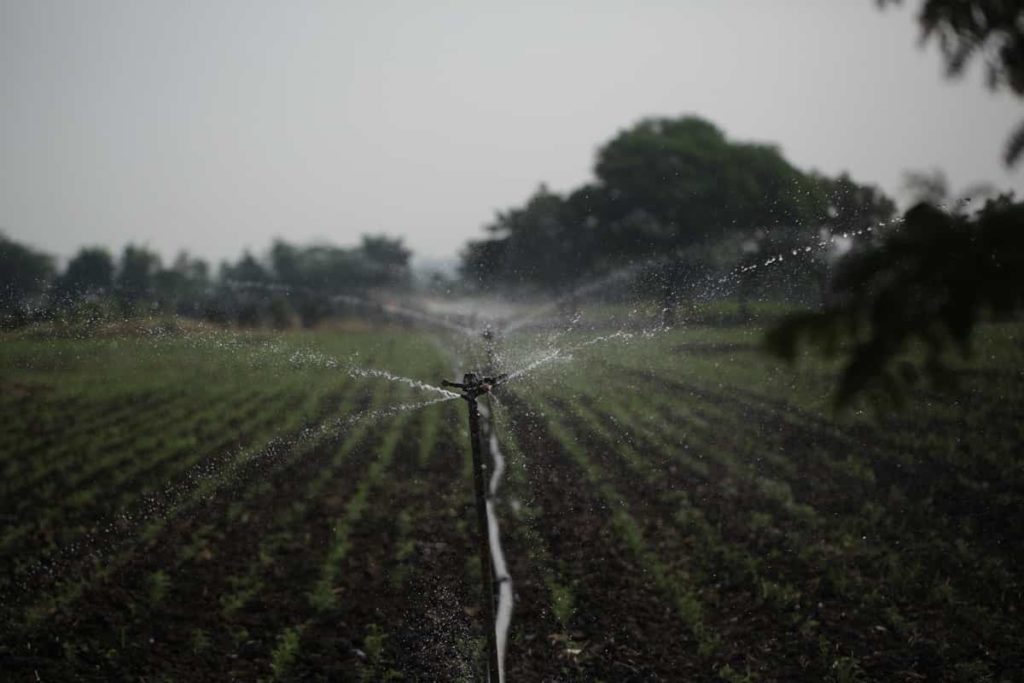
Artemis
Artemis is a budding agriculture start-up that has developed a cultivation management platform (CMP) that enables growers to manage plants, processes, and compliance in one place. This is possible thanks to the virtually risk-free operation. Additionally, Artemis is helping farms compete in a low-margin business by providing a bird’s-eye view of productivity and compliance from seed to harvest. With these solutions, it’s easier than ever to monitor and manage the operations of multiple facilities on your network remotely from your desktop, mobile, or tablet.
Cropx
It works with the world’s best farmers, to develop a new generation of precision agriculture methods that improve and reduce water consumption crop yields. This agriculture start-up developed the world’s first and only automated adaptive differential irrigation solution, successfully tackling this challenge.
Accurate, real-time soil data has long been a missing piece of the precision agriculture puzzle. Fortunately, Cropx solved this problem by developing a unique and proprietary soil sensor platform, integrated into a big data platform with all additional relevant data layers.
Smallhold
Smallhold provides retailers and restaurants with eco-friendly vertical farm units that produce large quantities of mushrooms, herbs, and leafy vegetables with minimal labor. The mushrooms are certified organic and competitive with traditional growing methods.
Babylon Micro-farms
It provides an on-demand indoor farming service to make sustainable indoor farming more accessible than ever. Their farms grow fresh produce 2x faster using 90% less water than conventional agriculture, without the use of pesticides or harmful chemicals. Their business model significantly reduces the upfront cost and expertise associated with indoor agriculture, powered by a patented IoT platform that remotely operates farms’ ecosystems.
FASAL
FASAL is a Bengaluru-based agritech platform and an AI-powered platform for agricultural ecosystems. It records various growing conditions on the farm and then uses artificial intelligence and data science to make predictions on the farm before delivering insights on any device including Android, iOS, and the web. FASAL has saved about 3 billion liters of fresh water to date. This agritech start-up is at the end of FY21 with 1000 farms and 20,000 acres of land in its scope.
In case you missed it: Exotic Herbs Farming in India: A Growing and Production Guide for Beginners.
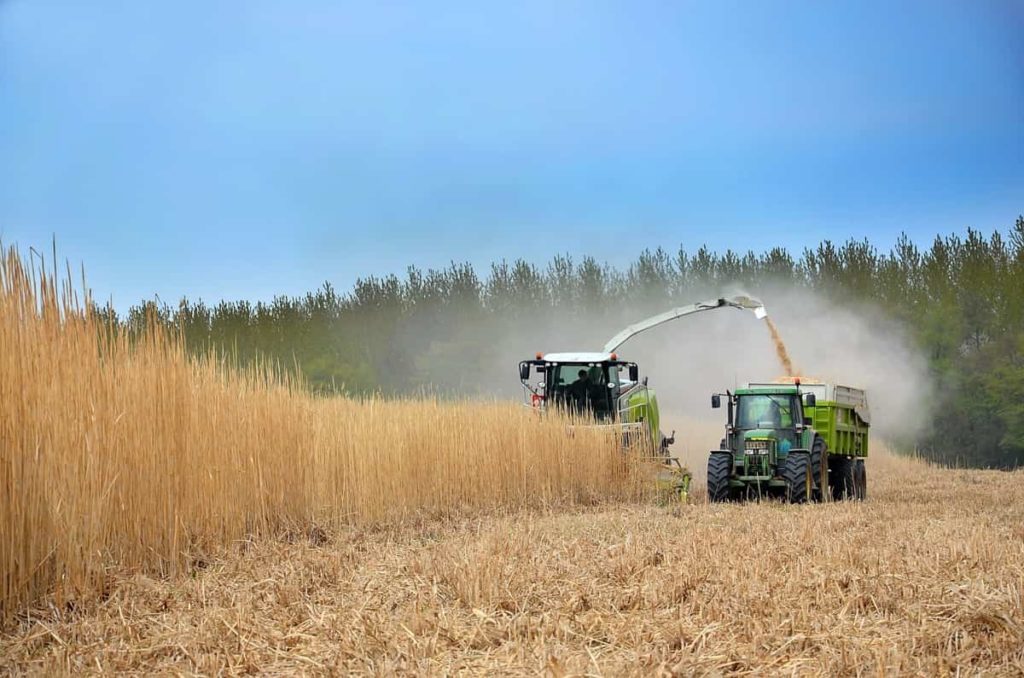
Conclusion
Agriculture is an important sector in many countries. From farmers producing food to processors and wholesalers, agriculture plays an important role in improving society as a whole. Thus, it is no surprise that technology has also found its way into the industry over the years, offering solutions and opportunities for agriculture start-ups with different focuses.
Sustainable or environmentally friendly farming refers to conservatively using water, maintaining soil health, and reducing air and water pollution. Agriculture start-ups provide information, techniques, and capabilities to farmers.
- Types of Pesticides Used in Agriculture: A Beginner’s Guide
- Economical Aquaculture: A Guide to Low-Budget Fish Farming
- 15 Common Planting Errors That Can Doom Your Fruit Trees
- How to Make Houseplants Bushy: Effective Tips and Ideas
- Innovative Strategies for Boosting Coconut Pollination and Yield
- Pollination Strategies for Maximum Pumpkin Yield
- The Complete Guide to Chicken Fattening: Strategies for Maximum Growth
- Natural Solutions for Tulip Problems: 100% Effective Remedies for Leaf and Bulb-Related Issues
- Revolutionizing Citrus Preservation: Towards a Healthier, Greener Future
- Natural Solutions for Peony Leaf and Flower Problems: 100% Effective Remedies
- Maximizing Profits with Avocado Contract Farming in India: A Comprehensive Guide
- Natural Solutions for Hydrangea Problems: 100% Effective Remedies for Leaf and Flowers
- The Ultimate Guide to Choosing the Perfect Foliage Friend: Bringing Life Indoors
- From Sunlight to Sustainability: 15 Ways to Use Solar Technology in Agriculture
- The Ultimate Guide to Dong Tao Chicken: Exploring from History to Raising
- The Eco-Friendly Makeover: How to Convert Your Unused Swimming Pool into a Fish Pond
- Mastering the Art of Delaware Chicken Farming: Essentials for Healthy Backyard Flocks
- 20 Best Homemade Fertilizers for Money Plant: DIY Recipes and Application Methods
- How to Craft a Comprehensive Free-Range Chicken Farming Business Plan
- Brighten Your Flock: Raising Easter Egger Chickens for Beauty and Bounty
- How to Optimize Your Poultry Egg Farm Business Plan with These Strategies
- Subsidy for Spirulina Cultivation: How Indian Government Schemes Encouraging Spirulina Farmers
- Ultimate Guide to Raising Dominique Chickens: Breeding, Feeding, Egg-Production, and Care
- Mastering the Art of Raising Jersey Giant Chickens: Care, Feeding, and More
- Ultimate Guide to Raising Legbar Chickens: Breeding, Farming Practices, Diet, Egg-Production
- How to Raise Welsummer Chickens: A Comprehensive Guide for Beginners
- How to Protect Indoor Plants in Winter: A Comprehensive Guide
- Ultimate Guide to Grow Bag Gardening: Tips, Tricks, and Planting Ideas for Urban Gardeners
- Guide to Lotus Cultivation: How to Propagate, Plant, Grow, Care, Cost, and Profit
- Agriculture Drone Subsidy Scheme: Government Kisan Subsidy, License, and How to Apply Online
- Ultimate Guide to Raising Araucana Chickens: Breed Profile, Farming Economics, Diet, and Care
- Bringing Hydroponics to Classroom: Importance, Benefits of Learning for School Students
- Ultimate Guide to Raising Polish Chickens: Breed Profile, Farming Economics, Diet, and Care
- Ultimate Guide to Raising Australorp Chickens: Profile, Farming Economics, Egg Production, Diet, and Care
- Silkie Chicken Farming: Raising Practices, Varieties, Egg Production, Diet, and Care
- Sussex Chicken Farming: Raising Practices, Varieties, Egg Production, Diet and Care